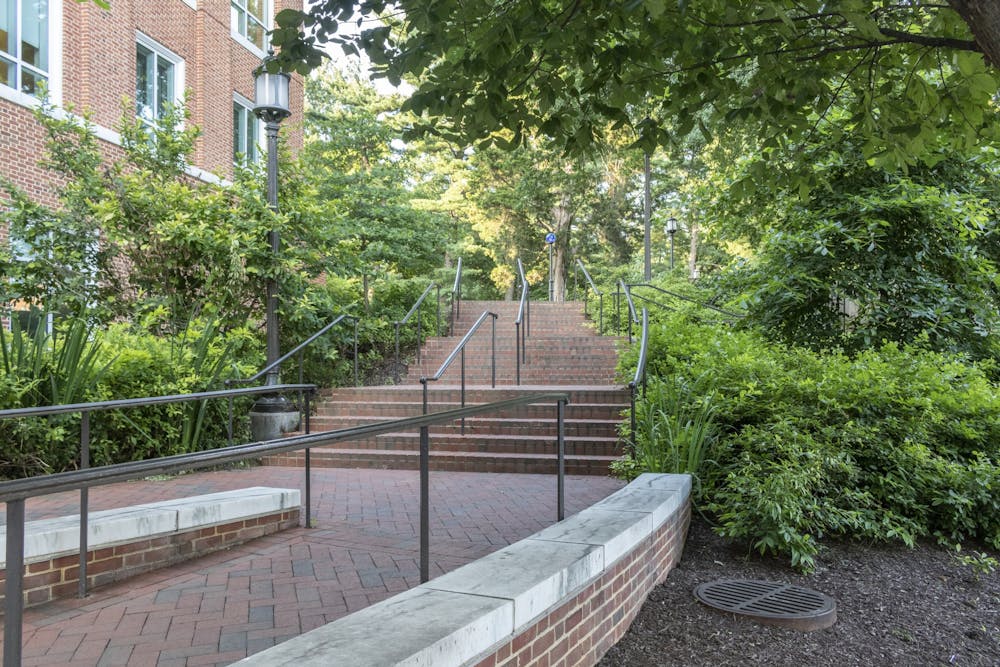Every student has been there at some point. Massive projects and exams are looming on the horizon, and one begins to feel the pressure for every moment of the day to be occupied with reading through the textbook and going through practice problems. It seems as if there is so much work to do, and it feels as if there is no room for downtime.
Research across the fields of psychology, cognitive science and neuroscience indicate that it may be beneficial to set aside time for downtime by taking intermittent breaks during long study or work sessions.
According to a 2012 study by researchers at the University of Southern California and the Massachusetts Institute of Technology, when the brain is not focused on a goal-oriented task, the mind taps into what are called default mode (DM) regions. The study found that these DM regions are processing memories and consolidating past experiences, meaning that even when we step away from our goal-oriented tasks, our minds are still hard at work.
Decades of neuroscience research reveal a complementary relationship between the engagement of the DM network and engagement in a focused, goal-oriented task. As one network is engaged more, the other is engaged less. Though it is not possible to engage both networks simultaneously, research indicates that it is beneficial to work towards striking a balance between the two.
Research published in 2009 in the Journal of Neuroscience by researchers at the Rudolf Magnus Institute of Neuroscience and Vrije Universiteit Amsterdam examined the relationship between heightened activity in DM regions of the brain and intellectual performance. The study found that greater communication between the DM regions during “rest” periods underlies better cognitive abilities.
More specific to the academic atmosphere, the relationship between DM network and the “on-task” network was tested on high school students in a study conducted by researchers at the University of Chicago. The study, published in Science in 2014, found that students who routinely engaged their DM network by reflecting on how they felt before an exam were more confident, and performed better on the test than students who did not.
In an interview with The News-Letter, Senior Associate Dean of Student Life Toni Blackwell noted that intermittent breaks seem to have an impact on the stress level of Hopkins students.
“The students who share with me that they have a routine of studying for a period of time — 2-3 hours — then taking a break don’t seem as stressed as their peers who state they spent the last eight hours studying with no break,” Blackwell said.
Research indicates that the type of activities being done while engaging the DM region plays a role in the degree of improvement in performance.
For instance, taking a moment to reflect on the bigger picture of the task at hand is empirically found to improve performance and motivation. A 2002 study by researchers at the Institute for Social Research at the University of Michigan found that reflecting on the future benefits of learning the topic at hand powerfully improved school performance and motivation.
On the other hand, certain activities during breaks, particularly those which are highly distracting, may be counterproductive.
A 2008 study by researchers at the University of Michigan found that those who walked outside in natural areas improved memory and attention scores by about 20 percent. However, participants who walked down city streets instead showed no improvement in their abilities, likely due to the hustle-bustle and the various distractions of city life.
In an interview with The News-Letter, junior Neuroscience major Cici Zhang noted that the right environment plays a role in healthy study habits.
“I think the idea that you have to be holed up cramming in complete silence is not a healthy study habit, something so many Hopkins students resort to. I think it’s best to allow yourself to be in a more relaxed environment every once in a while to give yourself some positive energy,” Zhang said.
Zhang noticed differences in her performance while doing things such as taking a walk outside with a friend or grabbing a cup of coffee during her breaks.
“I was actually able to sustain a more positive attitude, which prolonged my motivation,” Zhang said.
For some, using social media during breaks is a distraction that hinders focus and productivity.
Freshman International Studies major Holly Nelson reflected on her goal of taking intermittent breaks while studying for finals.
“I hope to take healthy, five-minute breaks, but avoid the use of technology and social media during them so that I don’t distract myself,” Nelson said.
Fortunately, plenty of methods exist to strengthen the DM network and boost the brain at work. Short naps, for instance, can enliven the mind.
Researchers Nicole Lovato and Leon Lack at Flinders University found that short naps ranging from 10 to 30 minutes restored wake-circuit neurons, improved alertness and raised student scores.
In an interview with The News-Letter, Dean of Student Life Smita Ruzicka encouraged students to take advantage of study break events that various offices and departments at Hopkins offer.
“There are various offices and departments that offer study breaks during finals and I invite students to take advantage of these study breaks and take some time to unwind and relax,” Ruzicka said.
Additionally, meditation is empirically supported as a means to strengthen the regions of the DM network and facilitate improvements in cognitive function.
A 2009 study conducted at the UCLA School of Medicine explains that meditation appears to grow the hippocampus, a section of the brain that is key for memory.
Although there is not yet conclusive evidence on the time it takes for meditation to cause the brain to perform significantly better, research findings from 2018 in the journal Frontiers in Neuroscience suggest that as few as 10 minutes a day can lead to positive results, if practiced consistently.
In the college atmosphere, finals season is full of heavy weeks of studying, with students trying their hardest to recall and master topics taught from the beginning to the end of the semester. Research suggests that it is beneficial to structure a few periods of downtime amid long study sessions. Every now and then, science says the brain needs a break to be at its best.

COURTESY OF CHRISTINA SIA
Achieve high scores this round of finals by taking care of your mental and physical health in scientifically proven ways while you study for tests.





